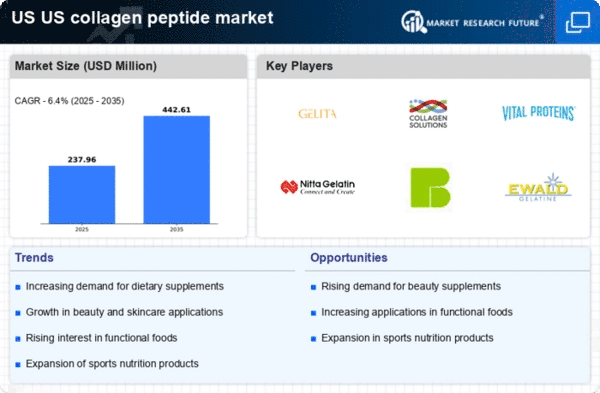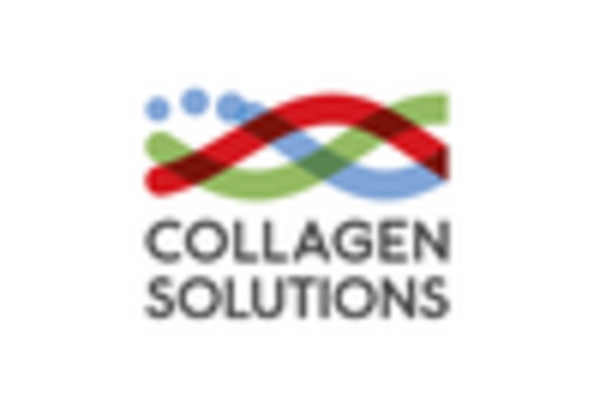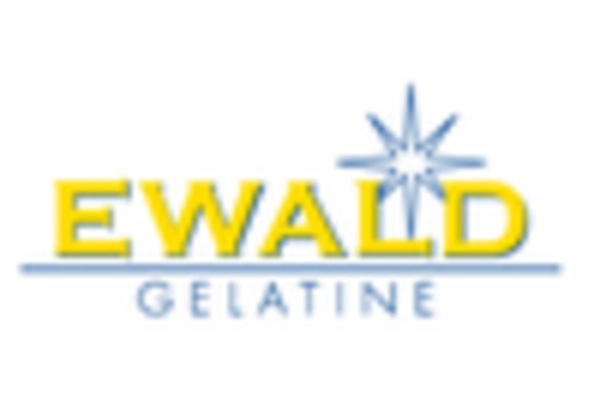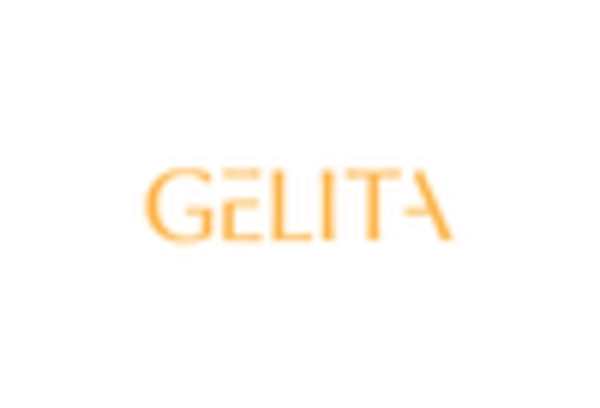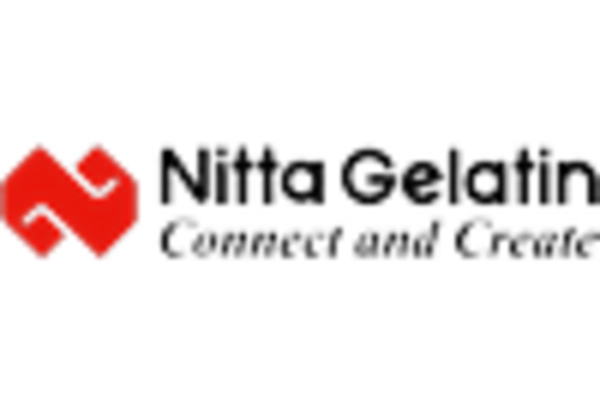Expansion of E-commerce Platforms
The rise of e-commerce platforms has significantly impacted the collagen peptide market, providing consumers with easier access to a variety of collagen products. Online shopping offers convenience and a wider selection, allowing consumers to compare products and prices effortlessly. In the US, e-commerce sales in the health and wellness sector have increased by over 20% in recent years, indicating a shift in consumer purchasing behavior. This trend is likely to continue, as more consumers prefer the convenience of online shopping. Consequently, the collagen peptide market is expected to benefit from this expansion, as brands enhance their online presence to capture a larger share of the market.
Innovations in Product Formulations
Innovations in product formulations are playing a crucial role in the growth of the collagen peptide market. Manufacturers are increasingly developing new and improved collagen products, such as flavored powders, ready-to-drink beverages, and functional snacks that incorporate collagen peptides. This diversification caters to a broader audience, including those who may not typically consume traditional collagen supplements. The introduction of innovative products is projected to drive market growth, with the collagen peptide market expected to witness a rise in product launches by approximately 15% annually. As consumer preferences evolve, the ability to offer unique and appealing formulations will be essential for market players.
Increasing Awareness of Health Benefits
The collagen peptide market is experiencing a surge in demand as consumers become increasingly aware of the health benefits associated with collagen supplementation. Research indicates that collagen peptides can improve skin elasticity, joint health, and overall well-being. This growing awareness is driving consumers to seek out products that contain collagen peptides, thereby expanding the market. In the US, the market for collagen supplements is projected to reach approximately $500 million by 2026, reflecting a compound annual growth rate (CAGR) of around 8%. As more individuals prioritize health and wellness, the collagen peptide market is likely to see sustained growth.
Rising Popularity of Beauty Supplements
The rising popularity of beauty supplements is significantly influencing the collagen peptide market. Consumers are increasingly viewing collagen peptides not only as a health supplement but also as a beauty-enhancing ingredient. This trend is evident in the growing number of beauty products that incorporate collagen, such as skincare and haircare items. The beauty supplement market in the US is projected to grow at a CAGR of 10% over the next five years, indicating a robust demand for products that promote beauty from within. As the collagen peptide market aligns with this trend, it is likely to see an influx of new products designed to meet the beauty needs of consumers.
Aging Population and Demand for Anti-Aging Solutions
The aging population in the US is a significant driver for the collagen peptide market, as older adults increasingly seek anti-aging solutions. Collagen production naturally declines with age, leading to visible signs of aging such as wrinkles and joint discomfort. This demographic is turning to collagen peptides as a means to combat these effects, thereby fueling market growth. It is estimated that by 2030, nearly 20% of the US population will be over 65 years old, creating a substantial market for anti-aging products. The collagen peptide market is likely to capitalize on this trend, offering targeted solutions for aging consumers.


